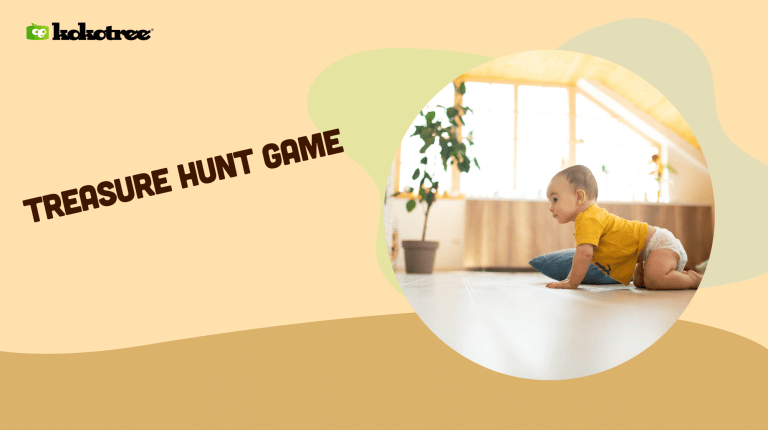

Written by: Kokotree
Updated:

Treasure Hunt is a game that has long been adored by kids of all ages. This engaging activity combines the thrill of discovery with the joy of outdoor or indoor exploration. Besides its recreational benefits, Treasure Hunt is also an excellent tool for kids, particularly toddlers and preschoolers, to develop several essential skills, like spatial awareness, problem-solving, and teamwork.
The Treasure Hunt game is a fun-filled adventurous activity where kids follow clues or a simplified map to locate a ‘treasure’ that has been hidden. Suitable for both toddlers and pre-schoolers, treasure hunts can be tailored to a child’s age, skill level, and interest. They are among the popular “games for kids” because they are packed with excitement and learning opportunities.
For ages 2-6. They watch and play for 20 minutes. You get a break.
⭐ 5,000+ parents get daily breaks with Kokotree.
Try it Free →Works in 30 seconds • No credit card • Cancel anytime
The goal of the Treasure Hunt game is to follow a series of clues or the directions on the map to locate the hidden ‘treasure’. This engaging activity encourages children to think, analyse, and reason while having fun.
For ages 2-6. They watch and play for 20 minutes. You get a break.
⭐ 5,000+ parents get daily breaks with Kokotree.
Try it Free →Works in 30 seconds • No credit card • Cancel anytime
The Treasure Hunt game fosters the development of a myriad of skills:
Adding variations to the Treasure Hunt game can make it even more interesting:
In conclusion, Treasure Hunt is an exhilarating game that presents a wealth of educational opportunities along with sheer fun. It is not just a delightful pastime but also a fantastic medium for children to enhance their analytical, communicative, and observational skills. So ‘set sail’ on this adventure with your kids and uncover the hidden joys of learning!



